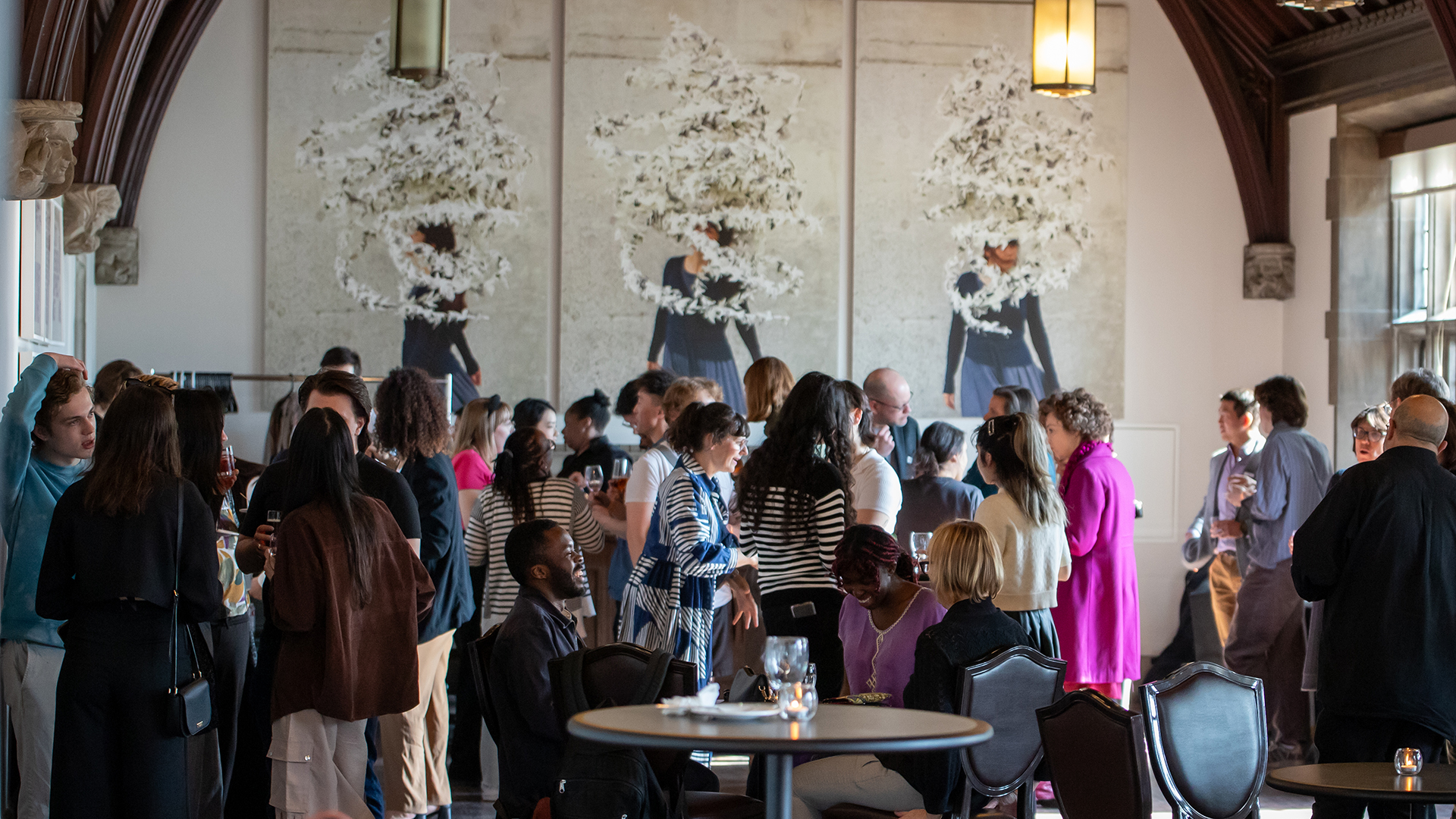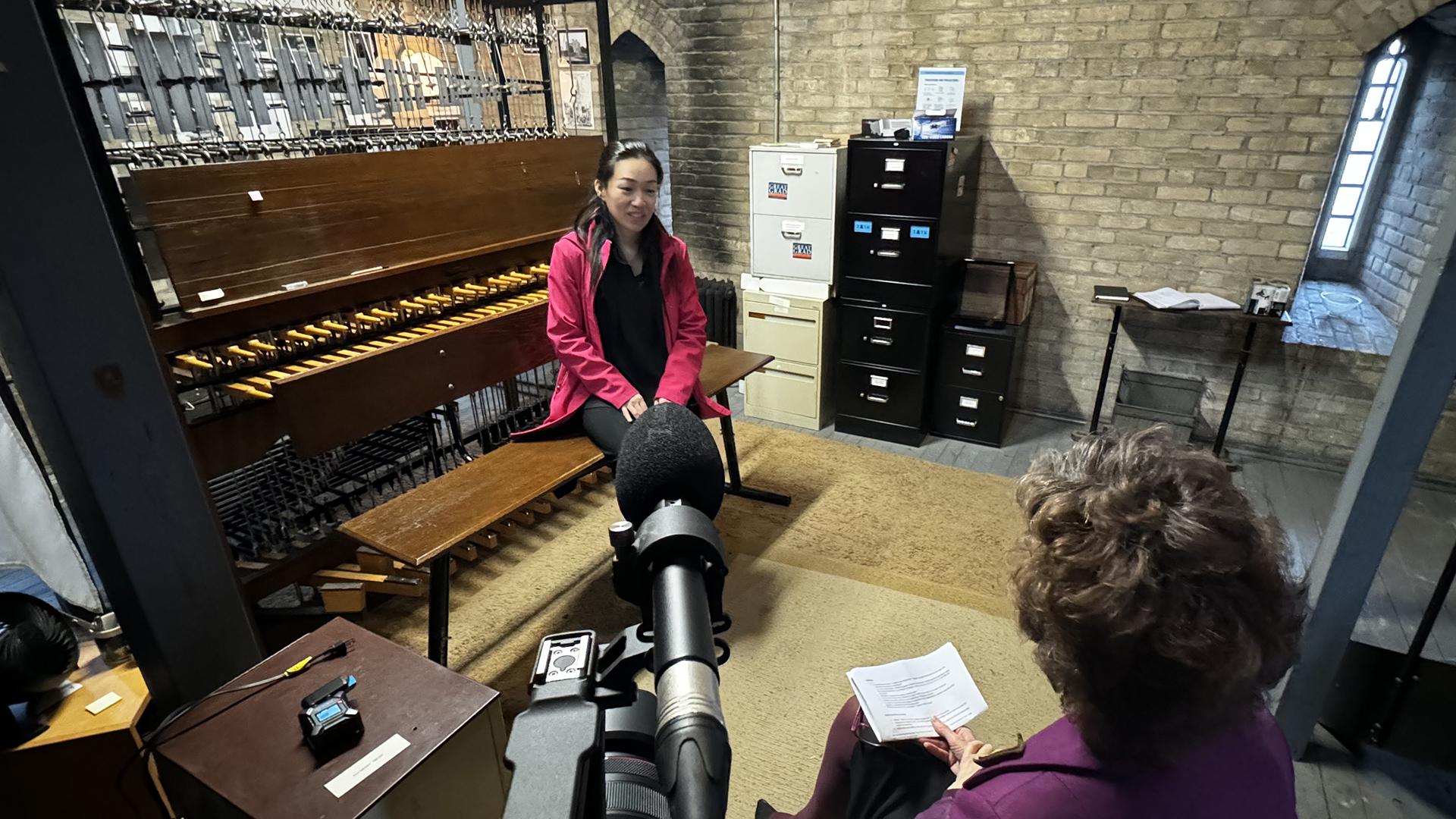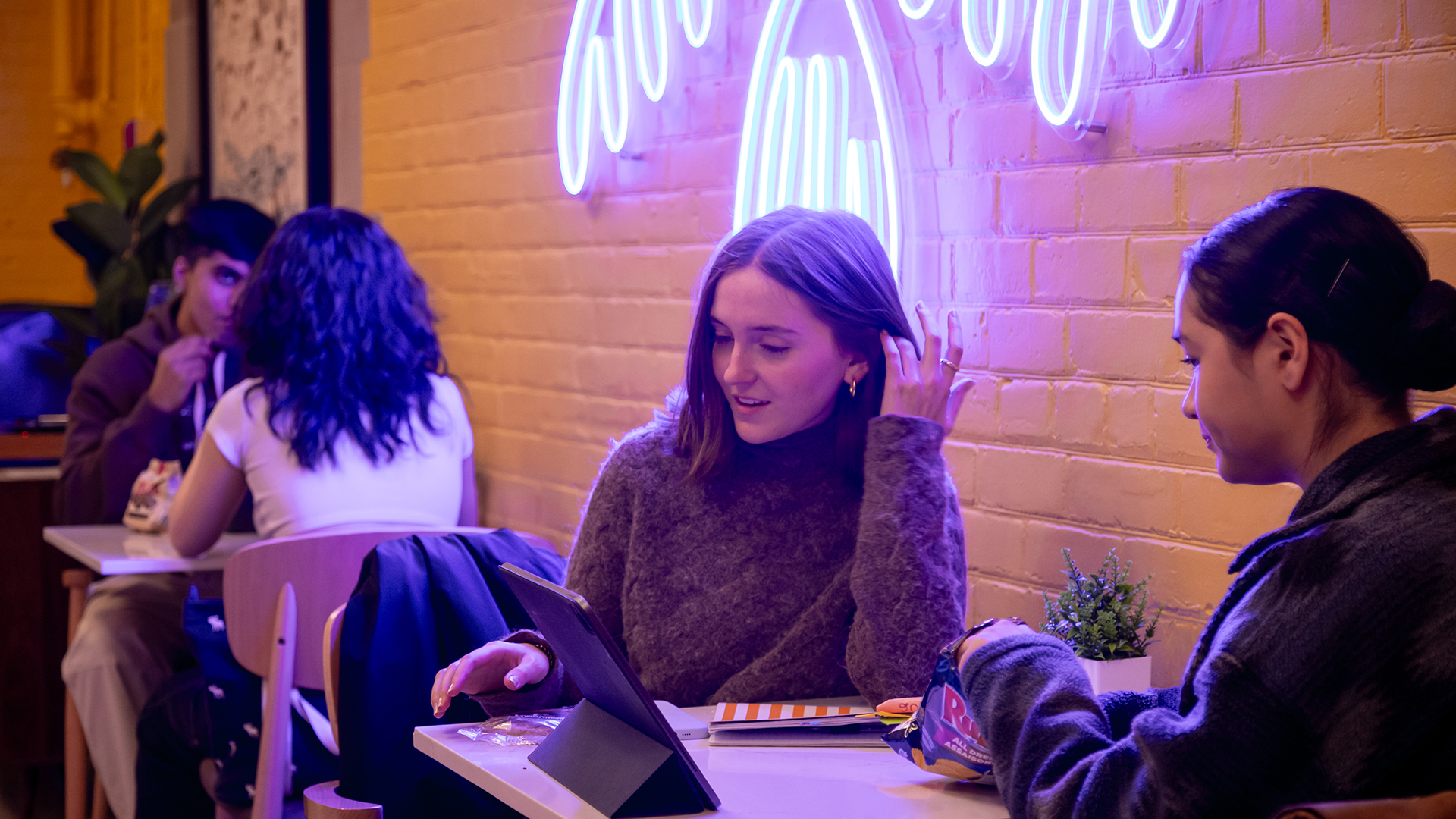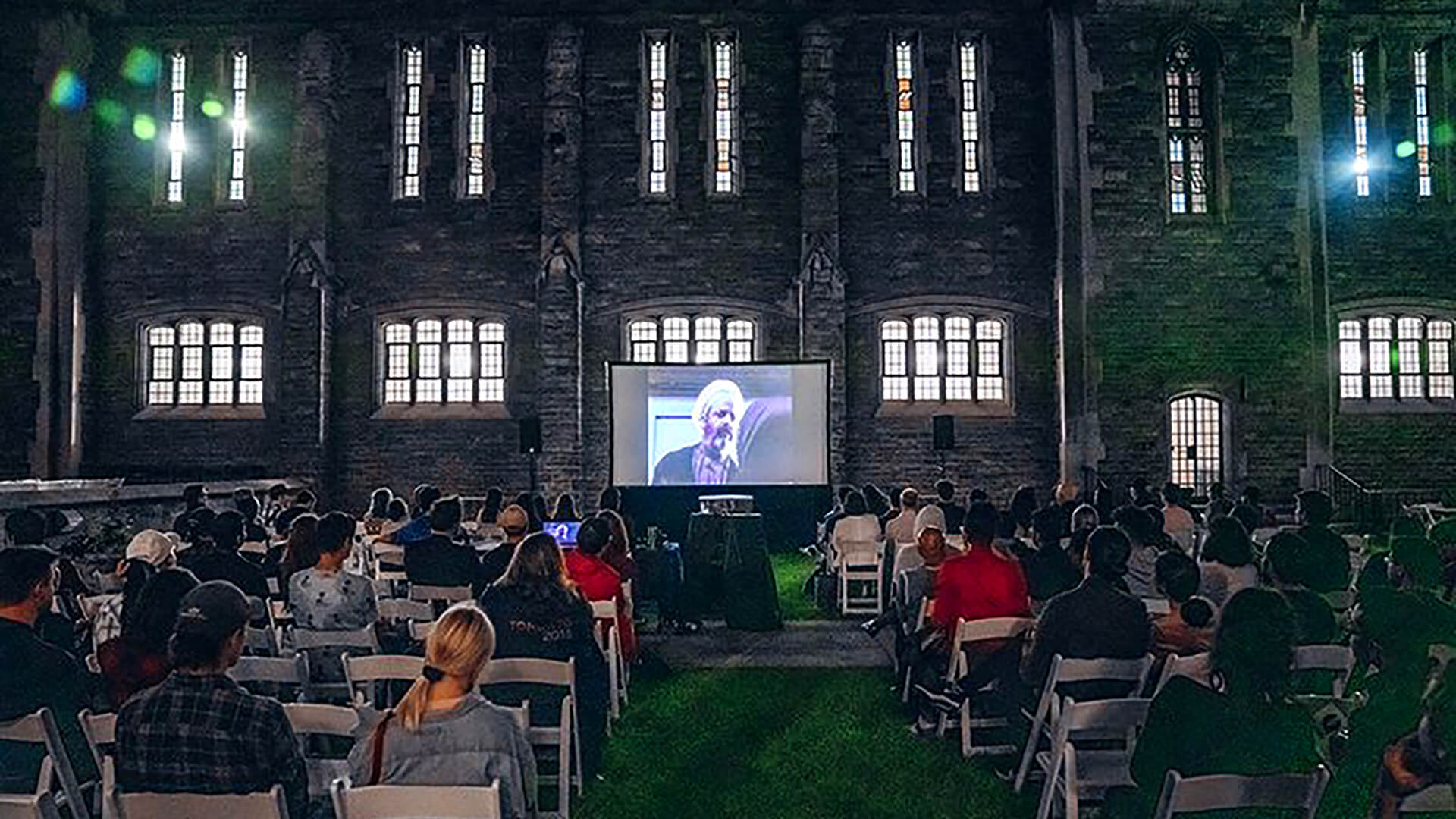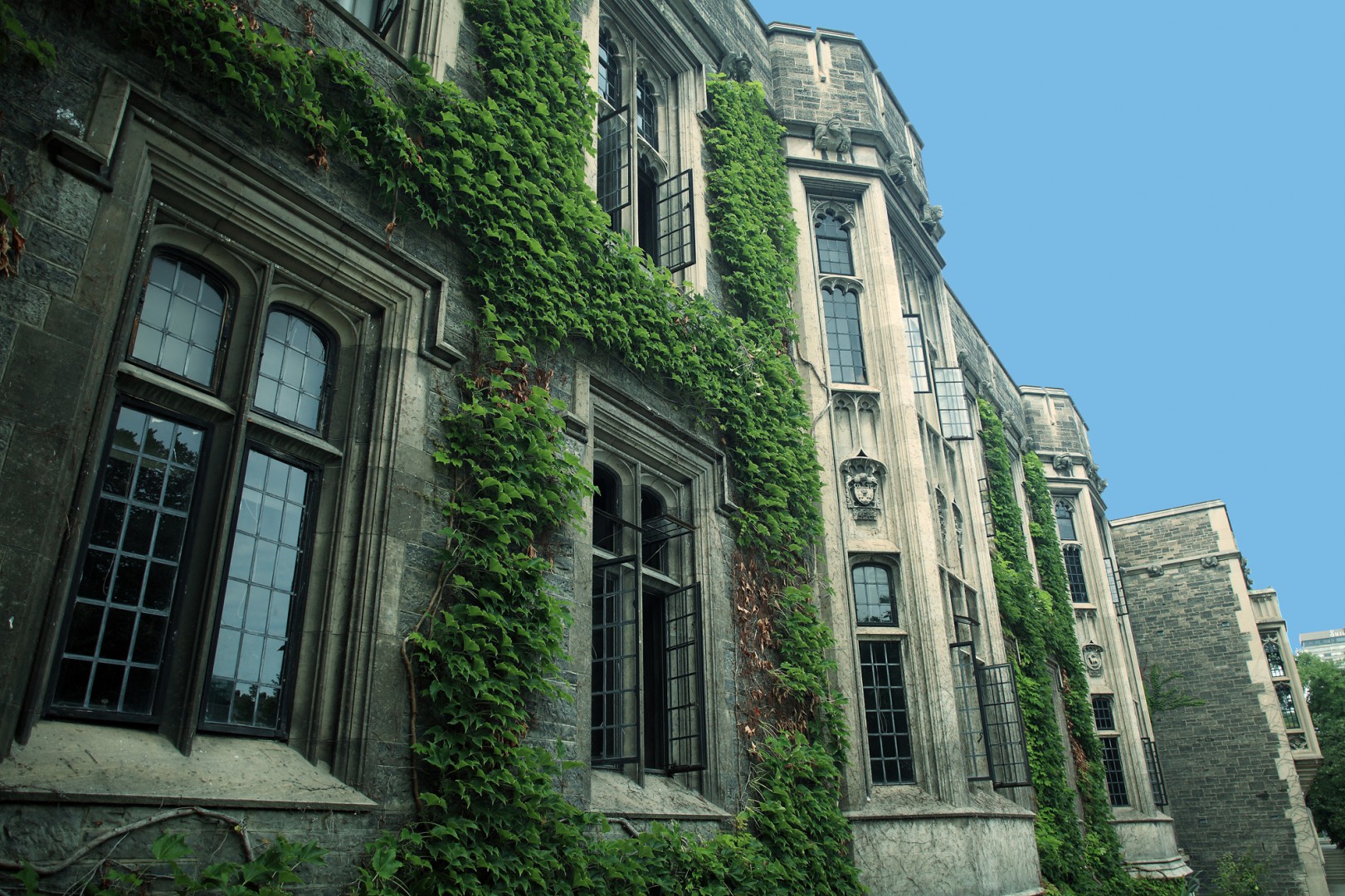
“In Conversation with …” is a special feature of the Hart House Quarterly where John Monahan, the Warden of Hart House, chats with staff members and personnel about themselves and their experiences at Hart House.
In this edition, John talks with Bongi Ngugama, Hart House’s Coordinator, Staff Relations and Professional Development. Bongi reflects on her year and a half at the House, what new obsession helped her get through the pandemic, and what she, a storyteller at heart, has come to appreciate most about the House.
JM: Bongi, good morning.
BN: Morning, John.
JM: How are you? It is Tuesday the 25th of January. Tell us what's going on in your condo this morning.
BN: We have a fire drill going on. We had the snowstorm the other day. We had a full power outage plus the elevators were down, plus no water.
JM: Oh, my gosh. Wow. And I thought I had a rough morning because my shower curtain fell. Alright, so. It's a pleasure to talk to you and to work with you. Remind me: when did you first join Hart House?
BN: August of 2020.
JM: My gosh. Has it already been a year and a half? Unbelievable. What's it been like for you? You joined during the pandemic. What has that experience been like for you?
BN: Well, I'd say I had a bit of a soft landing into Hart House. I kind of eased my way in because, during the first year of the pandemic, I started working at Hart House in a job-sharing capacity. I was only working two days a week at Hart House and the rest of the time I was in my home position at Rotman School of Management. So, the fact that I still had one foot in my old role, and that I was so familiar with U of T, I think these things helped to make the transition to Hart House easier.
But, of course, starting a new role working 100 per cent remotely was definitely interesting.
To be honest, I didn't know a lot about Hart House before I started.
JM: No, a lot of people don't. That's fine, I didn't either.

BN: I didn't have a strong frame of reference about the building, about how the various departments worked. For example, trying to understand the difference between the hub, the concierge desk and how the staff interacted with the Fitness Centre desk, it was a little tricky to visualize.
And meeting staff and coworkers for the first time over Teams … it could feel a little impersonal. There's something about walking down hallways, holding a conversation in doorways and talking to people face to face that's really valuable. It helps to ground you and give you a sense of where you work.
But working remotely soon became the new normal. Everyone was so welcoming here, especially my teammates, that I feel like I was able to settle in relatively quickly.
JM: Well, that's reassuring to hear. But as you're talking, I'm thinking to myself: you work in the Staff Relations and Professional Development department. So you're in one of those units that people are turning to during the pandemic for guidance and advice, and yet you were joining in the middle of this rushing river called the pandemic when things were changing so quickly. Do you think that added an extra layer of complication for you in adjusting? Or do you think maybe that was a kind of a gift in disguise? The fact that you were required to know more than the average person joining Hart House?
BN: Yes, I think a little bit of both. We kept hiring throughout the pandemic so there are a lot of other people who've come in in the same position that I was. I am able to relate to them and say, ‘I understand how difficult it is with that transition.’
JM: Tell me more about what you were doing at Rotman before coming to Hart House.
BN: I started at Rotman in 2016. And I've had a few different roles there. I started in the Career Centre, then I went over to Student Life and, most recently, I was the Building Operations Event Coordinator. That was a very busy job. We oversaw about 2,000 events a year.
But actually, I started out my career, many years ago, working in documentary film. I really thought that was the medium that best spoke to my interests. I enjoyed the part about being involved in an industry that is about reflecting people’s personal stories and their voices from their own perspectives. I worked at the National Film Board telling stories that reflected the lives and experiences of Canadians, particularly those in underrepresented communities.
JM: I had no idea.

BN: Absolutely. But when I was working at Rotman, some of the most consistent feedback we got from students was that they were looking for a broader and deeper student life experience beyond the classroom. So I feel that my documentary/social justice background, my arts background, my HR background and my student services background have all aligned perfectly in my current position here at Hart House.
JM: That’s so great to hear. I'm struck by how valuable each of those experiences would be for anyone working at Hart House, but particularly someone whose job involves supporting staff from all different areas of the House like yours does. I am curious, though: looking back to the time when you were first plotting your career trajectory, could you have imagined yourself at Hart House, or that you would be applying your interests and skills in a setting like Hart House? Was that something that was even a possible dot on the horizon to you?
BN: Not exactly. When I was growing up Ted Turner, the founder of CNN, was my idol.
JM: Really?
BN: True. I was really excited about the opportunity for storytelling, telling peoples’ stories. I remember when he started CNN. People thought: that's crazy. Who wants to hear news stories 24 hours a day? Nobody's going to buy into that.
Then later on, Oprah became another big idol. was Again, she was someone whose whole career involved hearing people’s stories and interacting with people. That human side of how people live, work, think and feel - that is what led me into documentary filmmaking.
The surprise, for me, was career switching into Human Resources, which was a total fluke.
JM: I’m not sure I believe in total flukes, but I think I know what you mean. What has that transition been like for you?
BN: Well, so far working on HR issues in the Staff Relations and Professional Development unit at Hart House has been a sort of unique experience. Sometimes when you do Human Resources work, you can feel you are in a bit of an ivory tower, in that you don't necessarily get to really know the organization you are serving, let alone its products or services. But that isn’t the case at Hart House. Here, I'm fortunate to be part of the Access and Community Engagement implementation team, and so I have a ground-floor view of the amazing initiatives that Hart House’s Youth Access department is leading in collaboration with other departments, such as Learning and Community, the Fitness Centre, Hospitality, and Marketing and Communications. So, even though I am in Staff Relations and Professional Development, I still feel that I'm part of the real work of Hart House, even though I don't work directly with students... We all have the same vision, which is to serve students, and so my position is to help those who are helping students in whatever way possible. I still feel that I'm a part of the arts community, the social justice community and the experiential education community, all by virtue of working at Hart House.

JM: You've been at Hart House for a year and a half. That's enough time, I presume, to form some to form some opinions, or at least impressions about what works, what doesn't, what could be enhanced. Where do you see areas of particular opportunity for Hart House to do more or to do differently?
BN: It's an interesting question because it’s hard to separate some of that from the times that we're living in right now...but from what I've observed, I think the pandemic has created a very challenging time. Working remotely, and being separated from one another, has added to a sense of uncertainty and isolation. That is why I think it is so important to always be conscious of staff morale, and regularly circling back to our staff to find out what their needs are, recognizing that both our personal lives and our work lives have been turned upside down over the past two years.
JM: Yes, I think you're absolutely right. I also think it's going to take a special kind of effort to re-build trust and to help everyone acclimatize to being back at Hart House in person when that time comes.
BN: I think so too. There could be some social anxiety. We have been so isolated and suddenly we’re back, face to face with people. In terms of human interaction, it's going to be really interesting. People may have lost some of the ability to read facial expressions and pick up on nonverbal cues because we've been operating in such a different way.
JM: Absolutely. Returning to “normal” will take time, effort and patience, but we are adaptable beings. And speaking of adapting, Bongi, what has been your release valve during the pandemic? What has gotten you through?
BN: Well, I've become an insatiable reader during the pandemic. It's interesting because I wasn't a prolific reader before.
JM: What do you mean by “prolific?”
BN: Well, I recently calculated that I read over 200 books in 2021.
JM: 200?!
BN: Yes, which is a bit scary to think about because that averages about four books per week. I'm not sure if that's healthy or not.
JM: Well, I think it's healthy, but WOW! Tell me: is it all fiction? Is it a mix of different genres? What do you mostly read?
BN: I have very eclectic taste. I've read biographies, thrillers, suspense, science fiction. I really run the gamut. I'm currently reading Project Hail Mary by Andy Weir. He wrote the novel that Matt Damon’s film “The Martian” was based on.
I haven't turned my television on in six months, which, for me, is shocking.
JM: I find it interesting that earlier you described yourself as a storyteller at heart. That's how you see yourself in the universe, and now you're immersing yourself, almost literally, in the world of stories.
BN: Yes.
JM: What does reading give you? What is it from reading stories that you find enjoyable or helpful?
BN: Well, it’s interesting. Even though I have always loved movies and television, for some reason at the start of the pandemic it almost felt almost frivolous to watch them. So I turned to books instead. And I found books to be somehow more grounding for me than either television or movies.
Maybe it’s because a book could transport me to another space and time, especially in the case of science fiction. Maybe that helped me mentally to cope better with the situation that we found ourselves in.
I think that being temporarily immersed in a different world can be one way of taking care of our well-being. But it’s not just about escapism: it is also about keeping our imaginations healthy, despite the complex realities of the world around us.
JM: I am still trying to fathom reading 200 books in a single year! I know it's not a competition, but if it were, you’d be the winner, Bongi. Congratulations!
BN: Thank you! (Laughs)
JM: So now let me ask you one more question: Is there anything you would like to say to folks who might be wondering about life at Hart House during these difficult times?
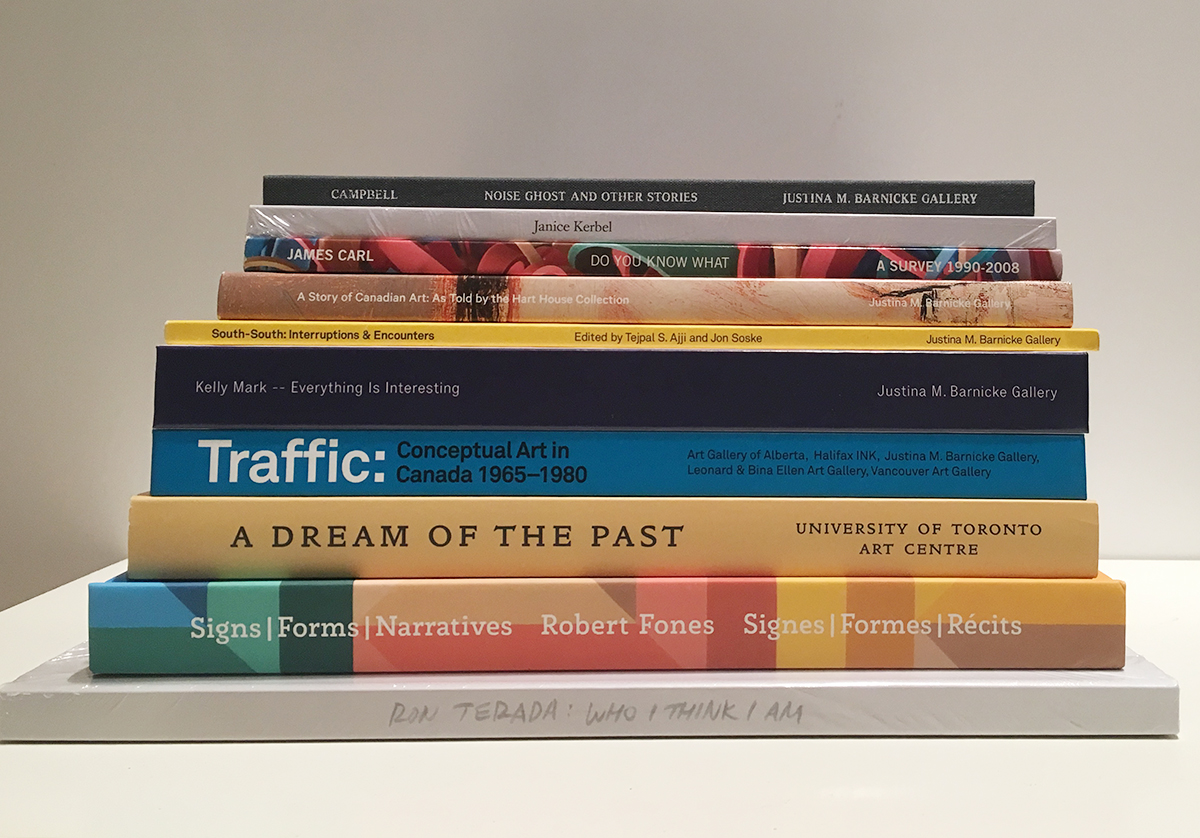
BN: Well, staying on the theme of reading, I would just remind people that a lot of our programming at Hart House involves storytelling, keeping people grounded, keeping people engaged, exposing them to new people and ideas. It’s a place where people can share their lived experiences at a time when we are feeling isolated, feeling uncertain. Being able to come to a place where they can learn about and talk about the human experience ... I think that's invaluable.
As I said at the beginning, before working here I was not aware of everything Hart House offered. So, for anyone who thinks they already know all about Hart House, I would encourage them to take a second and closer look.
JM: Bongi, thank you so much. I'm glad your fire alarm works. I'm even more grateful that we had this opportunity to talk this morning and I look forward to talking to you again soon.
BN: Thanks. It's been a pleasure.
